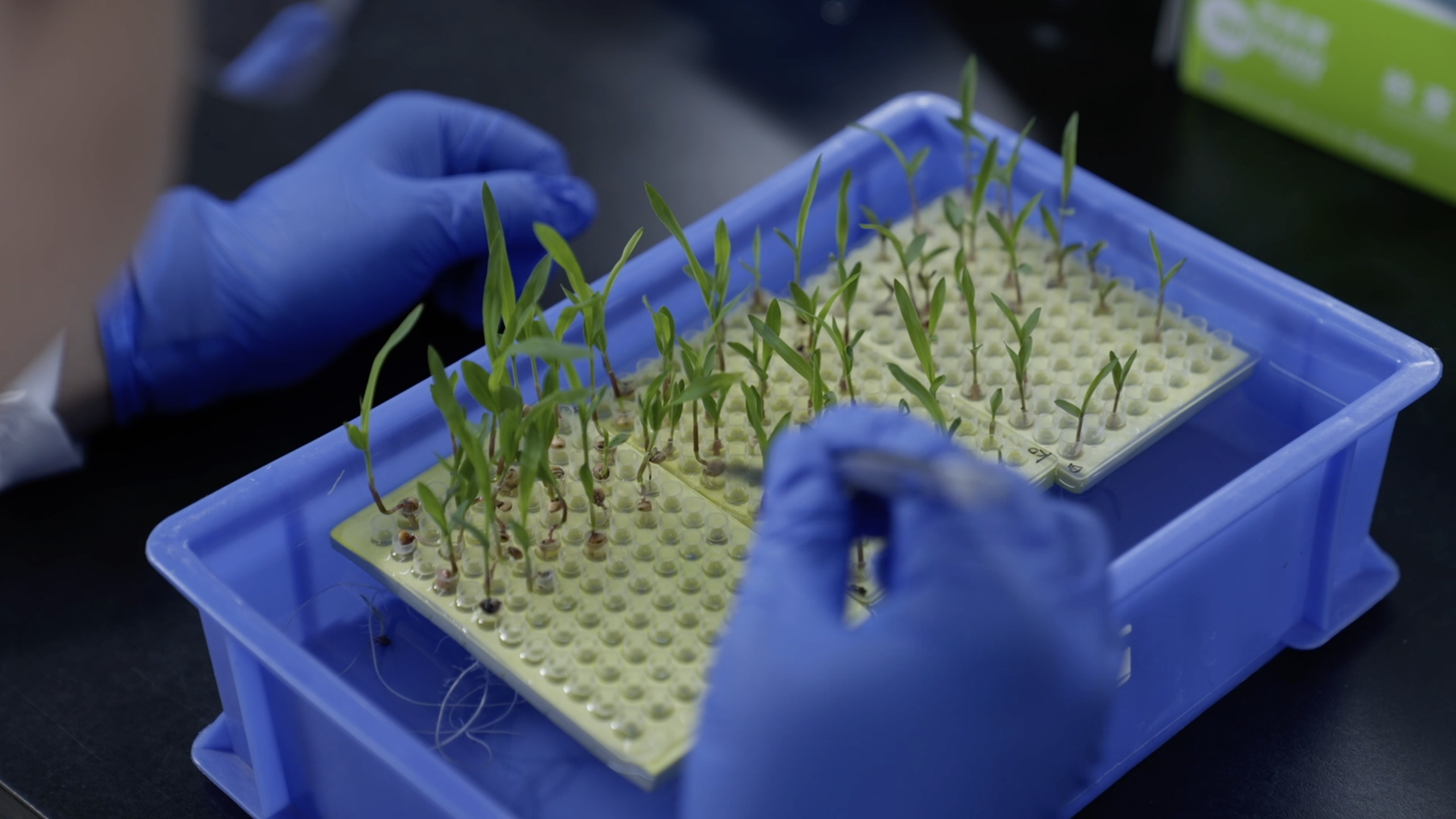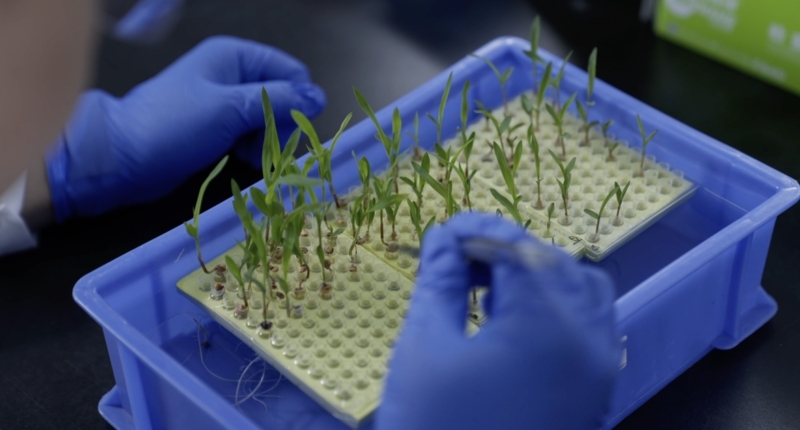Chinese scientists have discovered a gene, AT-1, that helps crops tolerate saline-alkaline soil conditions, potentially increasing crop yield in sodic lands by 250 million tonnes per year worldwide. The gene was identified by analyzing different responses to alkali from various sorghum varieties and their genomic information. It is related to both salt and alkali, making it unique in comparison to previously reported genes. The research was conducted by a team of eight organizations in China who have spent years on this project. They are concerned about food security and the decline of arable land worldwide and hope to better utilize the over 610 million hectares of sodic land globally. With scientific progress, sodic land has the potential to grow crops that tolerate saline-alkaline conditions. The discovery of this gene could be a significant step towards achieving this goal.
Chinese Scientists Discover Alkali Tolerance Gene for Crops

Chinese scientists have made a breakthrough in crop cultivation by discovering a key gene that helps crops tolerate saline-alkaline soil conditions. Named “AT-1” (Alkali Tolerance One), the gene could potentially increase crop yields in saline-alkaline soils. It was identified by analyzing different responses to alkali from various sorghum varieties and their genomic information.
According to Xie Qi, a scientist from the Institute of Genetics and Developmental Biology in the Chinese Academy of Sciences, “If the AT-1 modified crops can be planted in 20 percent of the salinized land on earth, there will be at least 250 million tonnes of additional crop yield per year worldwide.”
The discovery was based on a study on sorghum, a conventional crop originating from Africa where a significant amount of soil has been salinized. However, it has been applied to other crops like rice, wheat, maize, and millet.
What makes this discovery different is that the gene is related to both salt and alkali, whereas most previously reported genes were only related to salt. Across the world, 60 percent of sodic land is rich in alkaline, and only 40 percent mainly has salt. Thus, the gene has significant value and significance in the application.
The research was conducted by a team of eight organizations in China, led by Xia, who has spent years on this project. Since 2017, the team has been traveling to different sodic lands in China to carry out numerous tests in difficult environments and weather. They conducted research on various types of sorghum and found the gene before continuing research on other crops.
The scientists are hoping to increase agricultural production in sodic lands and address food security and the decline of arable land worldwide. With scientific progress, sodic land has the potential to grow crops that tolerate saline-alkaline conditions. The discovery of this gene could be a significant step towards achieving this goal.
Don’t miss interesting posts on Famousbio










